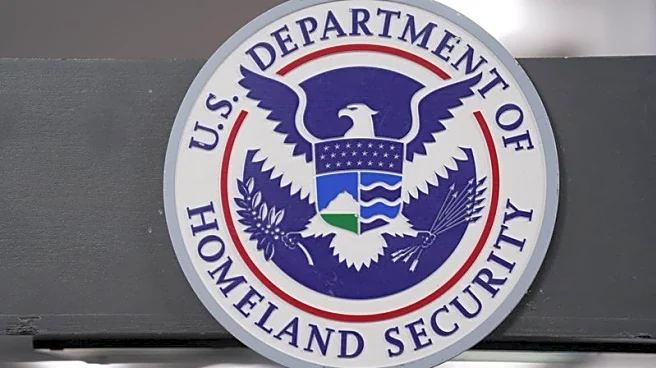What's Happening?
Arko Chattopadhyay, CEO and co-founder of Pipeshift, an AI startup based in the Bay Area, is moving forward with plans to hire up to ten new employees over the next year. This decision comes despite a recent executive order by President Trump that raised H-1B visa application fees to $100,000. The H-1B visa program is crucial for tech companies to recruit international talent, particularly engineers. While the fee increase has raised concerns among tech founders about its impact on startups, Chattopadhyay remains confident in his ability to attract talent locally or through alternative means. Pipeshift, which launched in 2024 and raised $2.5 million in seed funding, employs a mix of local and international staff, with some working remotely from India.
Why It's Important?
The increase in H-1B visa fees could significantly impact the U.S. tech industry, particularly startups that rely on international talent. Larger corporations may have the resources to absorb these costs, but smaller companies could struggle, potentially affecting their competitiveness and innovation capacity. However, Chattopadhyay's approach highlights a potential shift towards sourcing local talent or utilizing remote workers, which could mitigate the impact of the fee increase. This situation underscores the importance of flexible hiring strategies in maintaining a competitive edge in the tech sector, especially for startups with limited financial resources.
What's Next?
Pipeshift plans to hire two new employees in the U.S., including a green card holder and an individual on the Optional Practical Training (OPT) program. If the company wishes to retain the OPT candidate beyond the initial year, they may pursue an O-1 visa application. The executive order's impact on the timing and strategy for hiring international talent will be closely monitored by Pipeshift and other startups. As the company continues to grow, securing Series A or B funding could provide the financial flexibility needed to manage higher visa costs if necessary.
Beyond the Headlines
The executive order may refine access to the highest-skilled workers within the H-1B program, potentially leading to a more selective process for international talent. This could encourage startups to focus on developing local talent and exploring alternative visa options, such as L-1 visas for internal transfers. The broader implications for the U.S. tech industry include a potential shift in hiring practices and an increased emphasis on nurturing domestic expertise.











